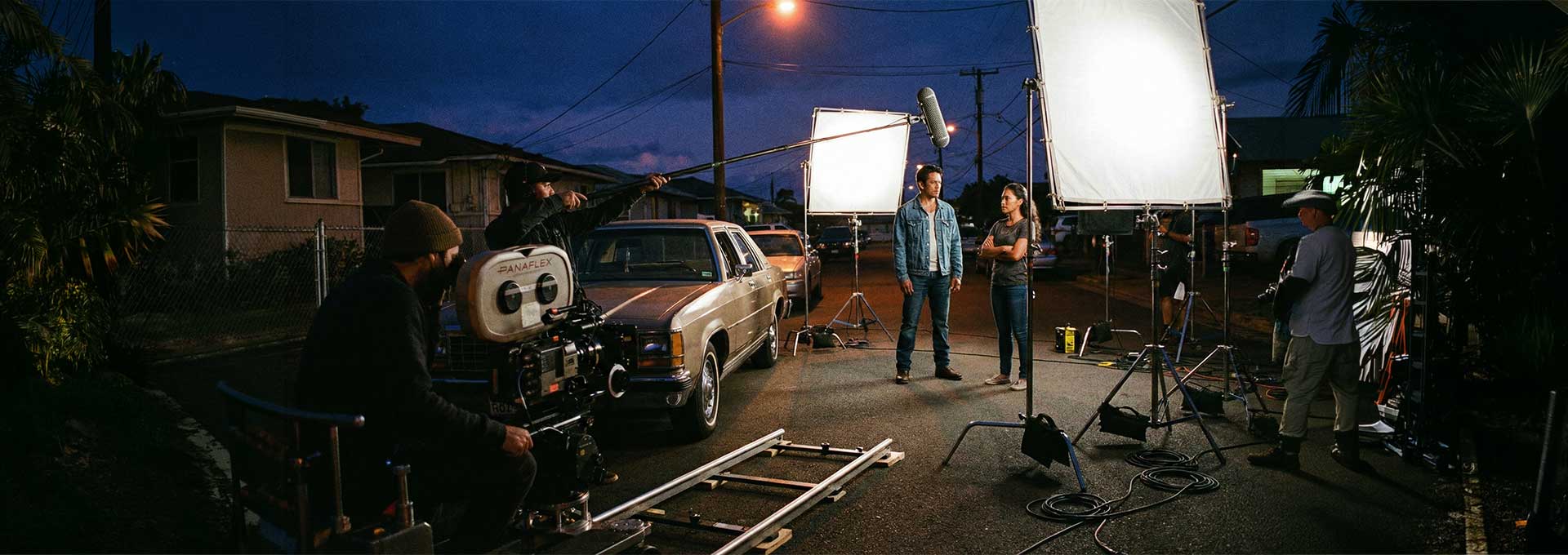
Hawaiian Pidgin in da Culture: Da Voice of da Islands
Hawaiian Pidgin, with its unique blend of linguistic influences and cultural nuances, has become a powerful tool for expressing local identity and shaping the portrayal of Hawaiʻi in popular culture. From music and movies to television shows and literature, Pidgin’s presence resonates, offering a glimpse into the heart and soul of the islands.
Da Beat of da Street: Pidgin in Island Music
Pidgin's influence on music is undeniable. Local artists like Israel Kamakawiwoʻole (Bruddah Iz) and Anuhea have infused their lyrics with Pidgin, creating a sound that is distinctly Hawaiian. Whether they are singing about a weekend kanikapila (jam session) or kicking back after pau hana (done with work), their music speaks to the everyday experiences and struggles of local people. It captures the essence of island life with humor, warmth, and authenticity, proving that sharing grindz (food) and good company sounds better in the mother tongue.

On da Big Screen: Film and Television
In film and television, Pidgin often serves as a marker of authenticity, adding a layer of realism to stories set in Hawaiʻi. Movies like "North Shore" and "Lilo & Stitch" incorporate Pidgin dialogue, using standard local greetings like howzit to establish character roots. Shows like "Hawaii Five-0" feature characters who code-switch between Pidgin and Standard English. When a character throws in a da kine (the universal placeholder), it immediately reflects the true linguistic diversity of the islands and signals to local viewers that the character belongs.
Telling Our Story: Local Literature
Literature, too, has embraced Pidgin as a means of capturing the unique voice of Hawaiʻi. Authors like Lois-Ann Yamanaka and Lee Tonouchi have skillfully woven Pidgin into their works. They use the language to talk story (share narratives), exploring themes of identity, belonging, and cultural preservation through the lens of language. This elevates Pidgin from a spoken dialect to a formal literary tool capable of carrying complex emotional weight.
More Than Just Words: Identity and Connection
Pidgin's role in shaping local identity is profound. It serves as a linguistic bond, uniting people from diverse backgrounds under a shared cultural umbrella. Pidgin embodies the spirit of aloha, reflecting the warmth, humor, and resilience of the Hawaiian people. By speaking Pidgin, whether arguing over who cooks the food or agreeing with a quick shoots, individuals assert their connection to the islands and express pride in their local heritage.

Da Kine Controversies: Navigating Representation
However, the use of Pidgin in media is not without its challenges and controversies. Some argue that clumsy mainland scripts perpetuate stereotypes and reinforce negative perceptions of Hawaiʻi and its people, making them look pupule (crazy) or uneducated. Others worry that its use in mainstream media may lead to its dilution or misrepresentation. Striking a balance between authenticity and respect—ensuring the representation remains pono (right and respectful)—remains a delicate task.
Shoots, Worldwide: Pidgin on da Global Stage
Despite these challenges, Pidgin's presence in popular culture plays a vital role in showcasing Hawaiʻi's unique identity on the global stage. It offers a counterpoint to the often romanticized and idealized portrayals of the islands, reminding the world that Hawaiʻi is more than just a tourist destination—it is a place with a rich cultural heritage and a distinct linguistic voice.
In an increasingly interconnected world, Pidgin serves as a powerful reminder of Hawaiʻi's unique place in the global community. It bridges the gap between the islands and the mainland, offering a glimpse into the heart and soul of a culture that cherishes its language, its traditions, and its unwavering spirit of aloha. Bumbai (eventually), the rest of the world will catch on.
Original archival photos courtesy of the Library of Congress. Colorized and enhanced.
